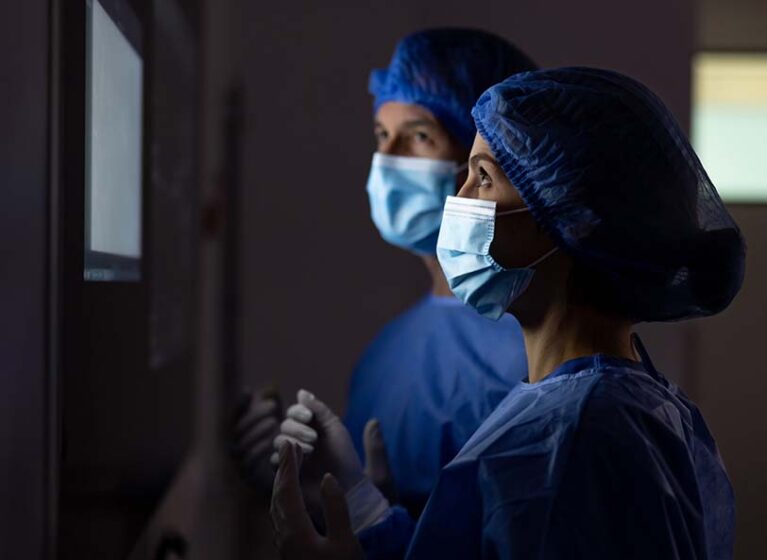
At UVA Health, we’re committed to providing exceptional care for patients with coronary artery disease (CAD).
From advanced noninvasive diagnostics to state-of-the-art treatments, we offer a full spectrum of options tailored to each patient’s needs.
Advanced Noninvasive Diagnostics
At UVA Health, our noninvasive cardiologists are leaders in advanced noninvasive diagnostic testing for CAD. We have the capability to evaluate the coronary microvasculature by:
- Using advanced stress testing techniques with MRI and PET
- Measuring myocardial blood flow
“This testing is especially beneficial for patients who continue to present with chest pain despite normal findings on a stress echo, stress nuclear scan, or cardiac catheterization,” says cardiologist Amit Patel, MD.
Our physicians have also published key research findings that have helped shape current best practices for diagnosing large blockages noninvasively. Additionally, we have ongoing clinical trials investigating microvascular disease.
Full Range of CAD Treatments
At UVA Health, we have the expertise, advanced technology, and surgical team backup needed to offer the full range of treatments for CAD, including:
- Medications
- Angioplasty and stent placement
- Bypass grafting
- Redo surgery
Our interventional cardiologists have deep expertise in even the most complex interventions, including for chronic total occlusion. We have a high success rate (about 90%) and a low complication rate for catheter-based procedures to treat a CTO.
U.S. News & World Report named our heart bypass surgery and heart attack care as high performing, their highest rating.
A Device for Enhanced Hemodynamic Support & Recovery
Additionally, our team has experience with percutaneous mechanical circulatory support devices. These are designed to provide temporary support to the left ventricle during high-risk percutaneous coronary interventions or in cases of acute cardiogenic shock.
By reducing left ventricular workload and improving cardiac output, these devices support patients with compromised cardiac function, helping to stabilize blood pressure and end-organ perfusion.
For patients in cardiogenic shock, such as after a myocardial infarction, the devices can provide the heart with the time and rest it needs to recover. This can reduce the need for more invasive options like ECMO or heart transplantation.
Referring Your Patient for CAD Evaluation & Treatment
Referring your patients to UVA Health means entrusting them to a multidisciplinary team with a proven track record in innovative care, clinical research, and excellent outcomes. We look forward to partnering with you to deliver the best possible care for your patients with CAD.